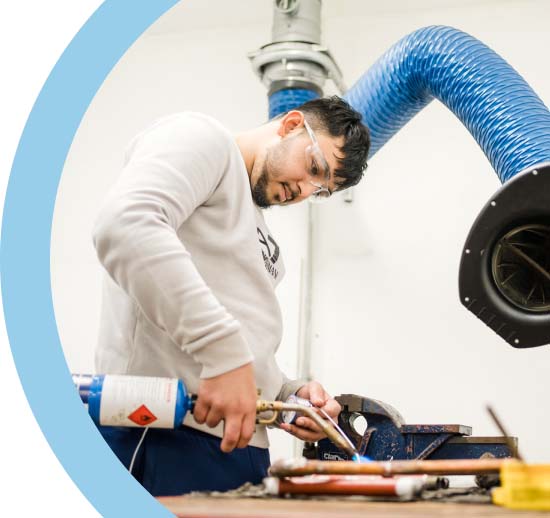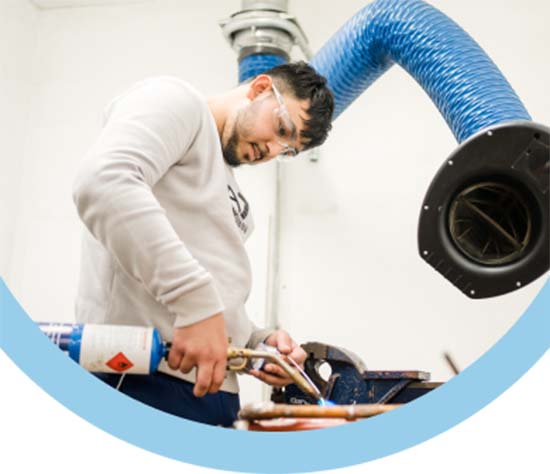

If you’re looking to hire an apprentice, or upskill a member of your team through an apprenticeship, we can help.

An apprenticeship combines the world of work with the world of learning. An apprentice gains hands-on practical training as well as off-the-job learning. Open to anyone aged 16 and over, you learn the skills and develop the knowledge you need to work in your chosen field, while employed in a salaried job.
We work with fantastic employers, offering apprenticeships in a wide range of industries and roles.
Our vacancies are advertised on a regular basis. Typically we offer apprenticeships in the following areas:

Absolutely – an apprenticeship is an ideal form of professional development, allowing you to retain an income as you study, progress in your current role, and develop your understanding of your industry.
Level: 2
Equivalent to: 5 GCSEs 4-9*
Suitable for: Junior roles and anyone new to the industry
Purpose: Intermediate Apprenticeships offer an entrance to an industry, teaching apprentices the basic skills and knowledge needed to progress within a chosen career path
Job Roles: Engineering Operative, Accounts Assistant, Butcher, Adult Care Worker, Leisure Team Member
Level: 3
Equivalent to: 2 A levels
Suitable for: Existing staff members and those who have completed a Level 2 apprenticeship
Purpose: Advanced Apprenticeships begin specialising, deepening existing knowledge of the industry, and developing skills and knowledge further
Job Roles: Software Developers, Chef de Parties, Electrical Engineers
Level: 4 and 5
Equivalent to: Foundation degree
Suitable for: Senior roles and employees looking to progress
Purpose: Higher Apprenticeships provide more advanced knowledge and skill development that specialise and refine towards senior roles and industry applications
Job Roles: Apprentice Teachers, Lab Technicians, Project Managers
Level: 6 and 7
Equivalent to: Bachelors or Masters degree
Suitable for: Specialist careers and senior roles
Purpose: Degree Apprenticeships usually involve undertaking an undergraduate or postgraduate qualification to gain senior positions with specialist skill sets
Job Roles: Accountant, Finance Analyst, Product Development Manager, Event Manager

Whether you have an idea of the industry in which you want to work, or whether you have no idea at all and want to know more about the apprenticeships out there, we can help. If you are currently employed and want to start an apprenticeship, we can help with that too.
We can help – we will invite you to an information session where we can discuss your options
We have put together some information which we hope you will find useful. If your question isn’t answered below, please contact us and we will be happy to help.
Call: 01535 685 035
Email: apprenticeships@keighleycollege.ac.uk
Apprentices are typically employed for at least 30 hours, up to a maximum of 40 hours a week, including a minimum of six hours of study time – meaning they benefit from the best of both worlds: work and education.
Apprenticeships last a minimum of one year, and can take between one and four years to complete, depending on the level of apprenticeship and the model of delivery.
Apprentices do not pay for their training.
Rates of pay for apprentices differ depending on your age and what year of your apprenticeship you’re in. Your employment contract should confirm your rate of pay. See here for more details